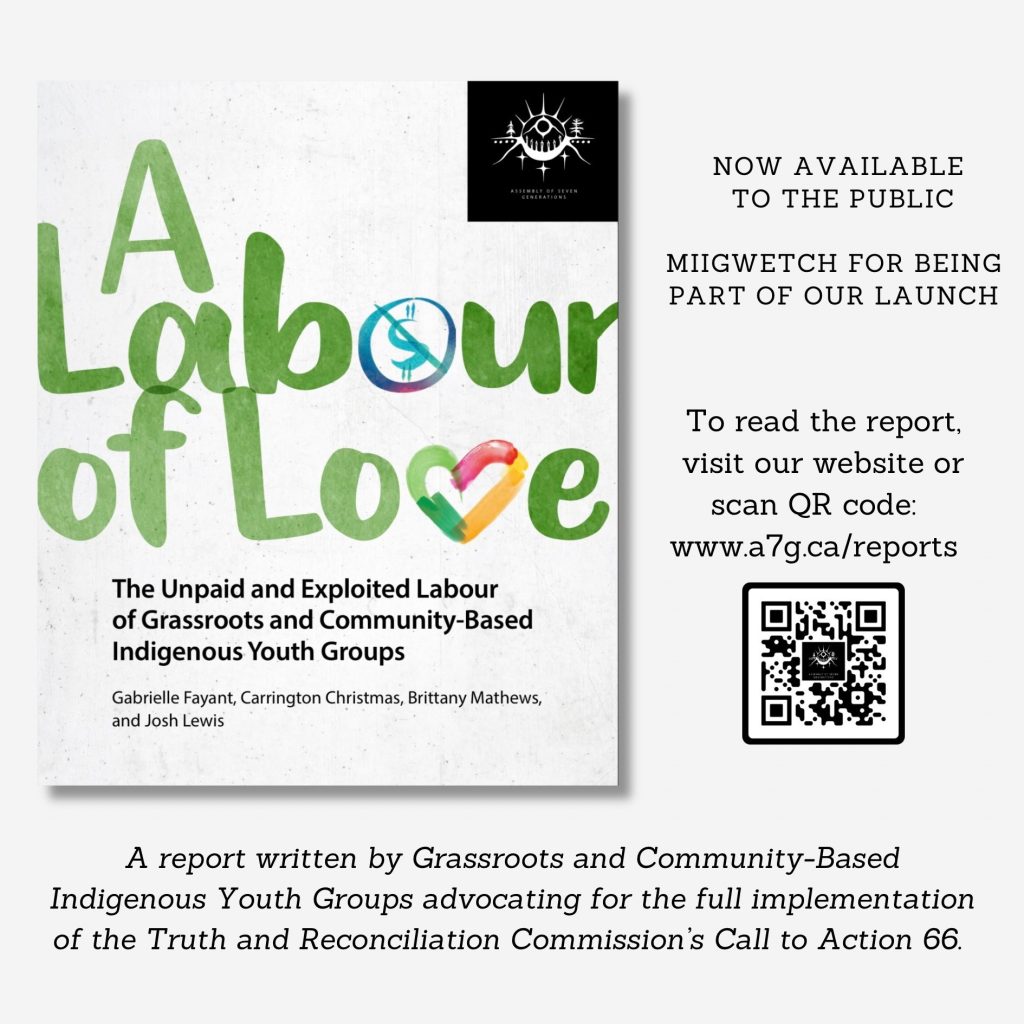
A new report has highlighted the vital work done by Indigenous youth organizations in their communities, and called on the Canadian government to provide sustainable funding for them. The report, entitled “A Labour of Love: The Unpaid and Exploited Labour of Grassroots and Community-Based Indigenous Youth Groups”, was published on April 17th alongside a panel hosted by the United Nations Permanent Forum on Indigenous Issues. It argues that the current funding system, which relies heavily on short-term project grants, is failing Indigenous youth groups, leading to stretched budgets, exploited labour, and a lack of funding reaching young people themselves.
The report was centred around the Truth and Reconciliation Commission’s Call to Action 66, which called on the federal government to provide multi-year funding for community-based youth organizations to deliver programs to other youth. A team of eight facilitators and writers heard from 10 diverse youth groups and collectives between June and October 2022, visiting each group in their territory and community. The report found that many organizations cannot employ full-time staff members and that much of the work done by Indigenous youth groups identified in the report happens on a volunteer basis or through month-to-month contracts.
The report’s authors, Gabrielle Fayant and Brittany Matthews, are calling for Indigenous youth groups to have full-time employment, community space, and land for programming. They argue that the current funding won’t cover the needs of these groups, particularly land-based programming and office space. The $150,000 grant over two years may only cover the costs of one or two full-time staff per year and low salaries, never mind benefits for staff or programming funds. Furthermore, many youth groups aren’t eligible for funding because they don’t have an outside trustee.
Indigenous youth groups often work with at-risk youth who struggle with the impacts of intergenerational trauma, and Fayant describes them as “lifelines”. However, many youth organizers are forced to patch together a living through a trickle-in of short-term grants, leading to inconsistent and underpaid employment among Indigenous youth organizers. Fayant said that progress on the TRC call to action is “in limbo” while she and other youth organizers struggle to make ends meet, working precariously or on a volunteer basis. The report argues that funding must be multi-year and based on the best interests and needs of Indigenous young people.